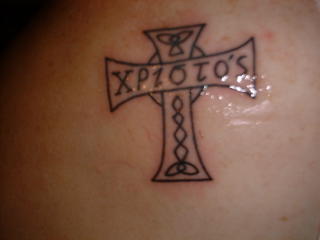"Saving Faith" was a sermon that was delivered on March 15, 1874 by Charles H. Spurgeon, the text of which is available here.
I tend to get all wrapped up in studies and debates (got a little OCD going on...) but God consistently uses them, not to "win" - since the battle is already won, but rather to solidify (or reveal) to me deeper things about Him. A while ago, I learned (through a Word-Faith debate) what faith is not. Now I am seeing, in more concrete ways, what faith is.
Luke 7:50 "And he said to the woman, Thy faith hath saved thee; go in peace."
Luke 18:42 "And Jesus said unto him, Receive thy sight: thy faith hath saved thee."
What was it that saved these two people? Christ said it was faith. Not love, not repentance, not works, not humility, not earnestness. Faith.
WHY FAITH?
First of all, because God has a right to choose what way of salvation He pleases. He has chosen that man be saved, not by works, but by faith in His dear Son.
But more: the promise comes by faith, so that it may be by grace (Romans 4:16).
If our salvation is entirely by grace, it must be entirely through faith. If there is any of me, any works, any merit of my own, then it is no longer entirely by grace, but by grace and works. Spurgeon said, "Faith is chosen by Christ to wear the crown of salvation because it refuses to wear the crown."
DOES FAITH SAVE?
No, faith is not salvation, it is the vehicle God has chosen to use. When we are hungry, we eat with our mouths, but it is not our mouth that fills us - it is the food. Our mouth is but the means by which to gain nurishment.
Just so, salvation is only by the grace of God - faith is the means by which to gain it.
All who are saved will travel a different road. Right now, I'm dreading facing my mom over an issue - but I'm not a cookie cutter Christian and I'm not going to try to be one anymore. My faith has traveled a different road.
Like the repentant woman and the blind man, faith is manifested in different ways and we must not measure ourselves by other Christians. Paul used meat as an example, "He who eats meat, eats to the Lord, for he gives thanks to God; and he who abstains, does so to the Lord and gives thanks to God." (Romans 14:6).
Where the Bible is silent, we have freedom. Thank God! Through faith, I can eat meat (or not).

